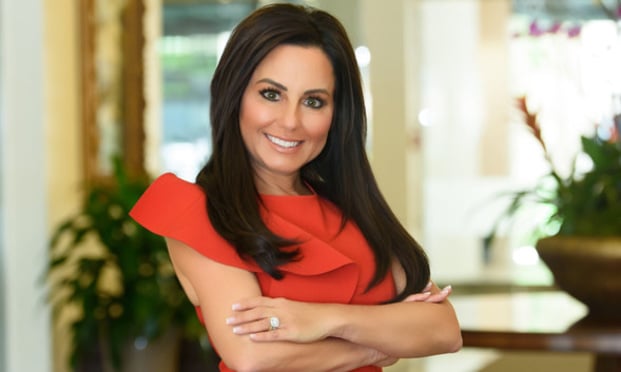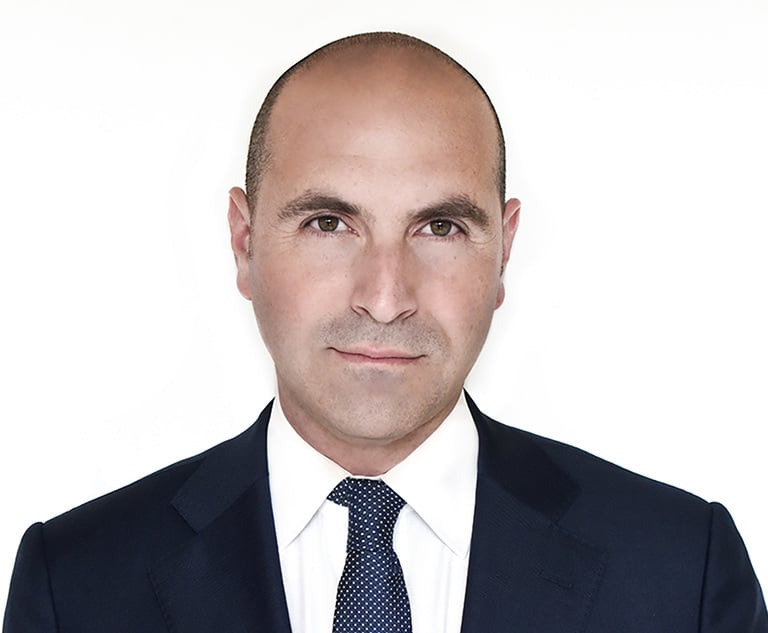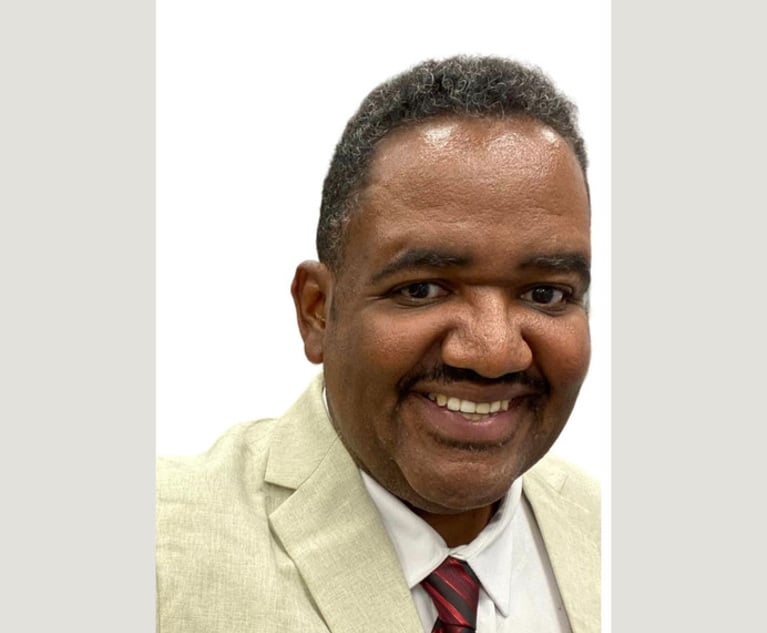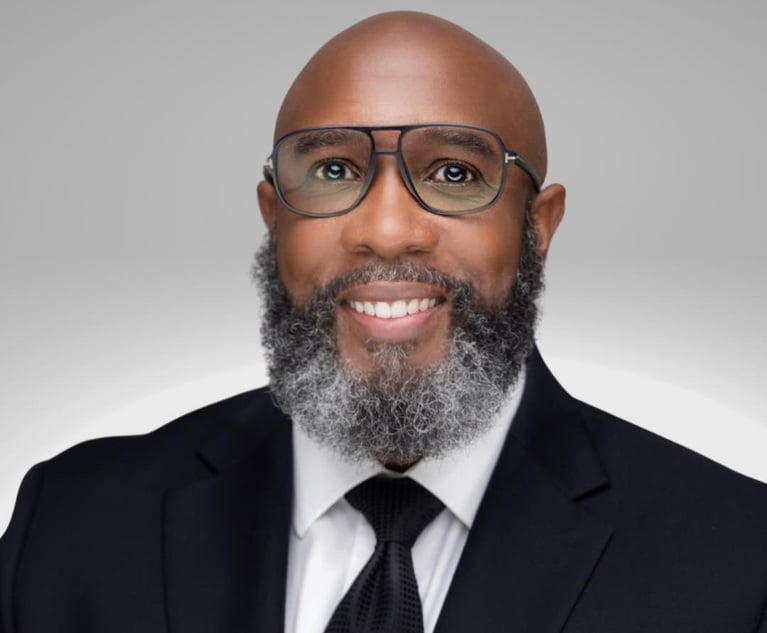How Journalism School Kickstarted Robin Bresky's Appellate Career
South Florida appellate lawyer Robin Bresky planned on being a journalist until she found a different way to use her flair for writing.
January 10, 2020 at 03:11 PM
7 minute read
 Robin Bresky of The Law Offices of Robin Bresky in Boca Raton. Courtesy photo.
Robin Bresky of The Law Offices of Robin Bresky in Boca Raton. Courtesy photo.
As a undergrad at the University of Florida, Robin Bresky was a familiar face around campus, where she reported the news and was a DJ for the school's television and radio stations. A broadcast communications major, she had a knack for journalism on all its platforms, also writing columns for health magazines and other publications.
"One time I covered a murder," Bresky said. "I thought I was going to continue on that path, and I was putting out my tapes to small cities all over the U.S."
That was until she attended a class about legal cases in the communications field, where the dominant topic of that time was whether cameras should be allowed in courtrooms.
Bresky was fascinated.
"There were a multitude of cases with that issue, and I just thought that that was really interesting," she said. "And as the years progressed and the issue came up, being a former journalist, I always was of the opinion that, 'Yes, cameras should be in the courtroom. The public had a right to know what was going on.' "
Bresky's then-boyfriend, a medical student, proposed as she began her career as an analyst for a radio research company. But when he landed an internship in New York, a now-pregnant Bresky left her Florida life behind. By the time the pair moved to Chicago with their newborn son a year later, Bresky was determined: She was going to become an attorney.
Worries about ending up in a " sub-par" program drove Bresky to search for a university that rotated its daytime professors to the evening division. Four years and a second child later, she had a work placement at Chicago's Cook County State Attorney's Office in the appellate division— also known as "the mommy track" back in the 1990s.
"They don't call it that anymore," she said.
Politically incorrect name aside, it was a place where law students could blend writing with legal work, by analyzing the record, reading transcripts, and learning what to do—and not do—in a case.
And it was a group with which Bresky could identify.
"A lot of them were working moms," she said. "I really had a lot in common with the people I was working with, because I was one of the few people there that actually had children at my age."
Bresky joined the Broward County State Attorney's Office in 1999, and soon realized the motions and legal writing were her favorite parts.
"I wanted to do more and more of that, so I opened my own firm," she said.
The Law Offices of Robin Bresky in Boca Raton focuses almost exclusively on appeals across the spectrum, including criminal law, personal injury, commercial, family and estate planning in federal and state courts. It's handled more than 400 appellate cases, and made case law on attorney fees, alimony, child support, timesharing and other areas.
In one pro bono first-degree murder case before the Florida Supreme Court, Bresky's firm argued that the use of the defendant's silence as substantive evidence of guilt violated the right to avoid self-incrimination under Florida's Constitution. The client had been convicted of shooting her husband but received a new trial when the high court found prosecutors shouldn't have emphasized her pre-Miranda silence at trial.
In another case, Bresky's firm landed a reversal for a client, who appealed on claims he'd been denied due process rights because he hadn't received notice of his trial. Bresky's team has also prevailed in arguing that the trial court should have reserved jurisdiction to consider whether its client was entitled to attorney fees.
And in December, Bresky was instrumental in having Miami-Dade Circuit Judge Marcia Del Rey removed from a divorce case over her undisclosed professional history with opposing counsel.
'Take the picture for the court'
Bresky also serves as litigation support for trial attorneys, particularly when there's an issue of first impression or lack of case law.
Her best advice? Always protect the record for appeal by voicing specific objections in the courtroom. Because it's not uncommon, Bresky said, to hear an exasperated attorney say, "Oh, what's the point? The judge keeps overruling me."
"The appellate court is just going to see the cold, hard record. They're not going to see the facial expressions, they're not going to hear the inflection. They're not going to see what's going on in the courtroom," Bresky said. "And if something is going on in the courtroom, the trial attorney should say, 'Let the record reflect that XYZ is happening, because you need to take the picture for the court sometimes."
Bresky's boundless energy and gregarious nature mean she's somewhat of a networking mogul, with deep commitments to voluntary bar organizations and pro bono work.
"I like working with people that are proud of their profession, and meeting like-minded people that know that we have a noble profession and want to keep it that way."
She sits on the Board of Governors for the Florida Bar and the Legal Aid Society of Palm Beach County, and is past president of the South Palm Beach County Bar Association, the Florida Association for Women Lawyers and the National Conference of Women's Bar Associations, though she hopes that "one day we won't need women's bar associations."
Bresky's also created a South Florida networking group called the Attorney Wellness Exchange, which focuses on helping lawyers achieve a work-life balance "with all the craziness that we do." It hosts speakers specializing in areas like nutrition, cardiology, psychology, social media and stress management.
Bresky won the Soroptimist International Women of Distinction award for her community work in 2019, after Robert Bertisch, executive director of The Legal Aid Society of Palm Beach County, nominated her.
"Besides the fact that Robin has great legal skills, she's also very compassionate and understanding of the needs of those people in our community who really have no one else to speak on their behalf," Bertisch said.
Bresky and her husband, Dr. Kenneth Bresky, have co-chaired its annual pro bono recognition gala two years in a row, raising more than $400,000. The couple now has two adult children, and is approaching its 30th anniversary.
The Legal Aid Society will hold its second annual "Bresky Bash," a community concert geared toward raising money to expand services to U.S. military veterans and their families.
Bresky focuses on domestic violence, family law and divorce cases at the Legal Aid Society, where she's made it her mission to recruit attorneys from Boynton Beach, Delray Beach and Boca Raton, which are often left out.
Thanks to the first Bresky Bash, those areas now have two domestic violence lawyers. This year's bash will be Jan. 23 at Mizner Park Amphitheater in Boca Raton.
Born: April 1968, Albany, New York
Spouse: Dr. Kenneth Bresky
Education: Chicago-Kent College of Law, J.D., 1997; University of Florida, B.S. 1990
Experience: Founder, The Law Offices of Robin Bresky, 2000-present; Prosecutor, Broward County State Attorney's Office, 1999-2000; Extern, Cook County State Attorney's Office, Chicago, 1996-1997
More profiles:
How People Watching in a Pizzeria Produced Kluger Kaplan's 1st Hispanic Partner: Christina Echeverri
Unwinnable Case? Give Miami Trial Veteran Philip Freidin a Crack at It
This content has been archived. It is available through our partners, LexisNexis® and Bloomberg Law.
To view this content, please continue to their sites.
Not a Lexis Subscriber?
Subscribe Now
Not a Bloomberg Law Subscriber?
Subscribe Now
NOT FOR REPRINT
© 2025 ALM Global, LLC, All Rights Reserved. Request academic re-use from www.copyright.com. All other uses, submit a request to [email protected]. For more information visit Asset & Logo Licensing.
You Might Like
View All
Growing Referral Network, Alternative Fees Have This Ex-Big Law’s Atty’s Bankruptcy Practice Soaring
5 minute read
Against the Odds: Voters Elect Woody Clermont to the Broward Judicial Bench
4 minute read
Miami Civil Judge Myriam Lehr to Say Goodbye to the County Court Bench
4 minute readLaw Firms Mentioned
Trending Stories
Who Got The Work
J. Brugh Lower of Gibbons has entered an appearance for industrial equipment supplier Devco Corporation in a pending trademark infringement lawsuit. The suit, accusing the defendant of selling knock-off Graco products, was filed Dec. 18 in New Jersey District Court by Rivkin Radler on behalf of Graco Inc. and Graco Minnesota. The case, assigned to U.S. District Judge Zahid N. Quraishi, is 3:24-cv-11294, Graco Inc. et al v. Devco Corporation.
Who Got The Work
Rebecca Maller-Stein and Kent A. Yalowitz of Arnold & Porter Kaye Scholer have entered their appearances for Hanaco Venture Capital and its executives, Lior Prosor and David Frankel, in a pending securities lawsuit. The action, filed on Dec. 24 in New York Southern District Court by Zell, Aron & Co. on behalf of Goldeneye Advisors, accuses the defendants of negligently and fraudulently managing the plaintiff's $1 million investment. The case, assigned to U.S. District Judge Vernon S. Broderick, is 1:24-cv-09918, Goldeneye Advisors, LLC v. Hanaco Venture Capital, Ltd. et al.
Who Got The Work
Attorneys from A&O Shearman has stepped in as defense counsel for Toronto-Dominion Bank and other defendants in a pending securities class action. The suit, filed Dec. 11 in New York Southern District Court by Bleichmar Fonti & Auld, accuses the defendants of concealing the bank's 'pervasive' deficiencies in regards to its compliance with the Bank Secrecy Act and the quality of its anti-money laundering controls. The case, assigned to U.S. District Judge Arun Subramanian, is 1:24-cv-09445, Gonzalez v. The Toronto-Dominion Bank et al.
Who Got The Work
Crown Castle International, a Pennsylvania company providing shared communications infrastructure, has turned to Luke D. Wolf of Gordon Rees Scully Mansukhani to fend off a pending breach-of-contract lawsuit. The court action, filed Nov. 25 in Michigan Eastern District Court by Hooper Hathaway PC on behalf of The Town Residences LLC, accuses Crown Castle of failing to transfer approximately $30,000 in utility payments from T-Mobile in breach of a roof-top lease and assignment agreement. The case, assigned to U.S. District Judge Susan K. Declercq, is 2:24-cv-13131, The Town Residences LLC v. T-Mobile US, Inc. et al.
Who Got The Work
Wilfred P. Coronato and Daniel M. Schwartz of McCarter & English have stepped in as defense counsel to Electrolux Home Products Inc. in a pending product liability lawsuit. The court action, filed Nov. 26 in New York Eastern District Court by Poulos Lopiccolo PC and Nagel Rice LLP on behalf of David Stern, alleges that the defendant's refrigerators’ drawers and shelving repeatedly break and fall apart within months after purchase. The case, assigned to U.S. District Judge Joan M. Azrack, is 2:24-cv-08204, Stern v. Electrolux Home Products, Inc.
Featured Firms
Law Offices of Gary Martin Hays & Associates, P.C.
(470) 294-1674
Law Offices of Mark E. Salomone
(857) 444-6468
Smith & Hassler
(713) 739-1250







